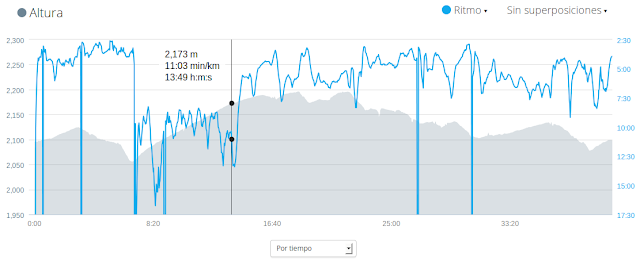Del libro del Sr. Comer sobre Internetworking with TCP/IP se puede encontrar un ejemplo de la utilización de Sockets. También es válido para comunicación entre procesos IPC.
He aquí los dos archivos para el ejemplo:
/*whoisclient.c -main */
#include <stdio.h>
#include <stdlib.h>
#include <string.h>
#include <sys/types.h>
#include <sys/socket.h>
#include <netinet/in.h>
#include <netdb.h>
/*_________________________________________________________________
* Program: whoisclient
*
*Purpose: UNIX application program thar becomes a client for the
* Iternet "whois" services.
*
*Use: whois hostname username
*
*__________________________________________________________________
*/
main (argc,argv)
int argc; /*standard UNIX argument declarations */
char *argv[];
{
int s; /*socket descriptor */
int len; /*length of received data */
struct sockaddr_in sa; /*Internet socket addr, structure */
struct hostent *hp; /*result of host name lookup */
struct servent *sp; /*result of service lookup */
char *myname; /*pointer to name of this program */
char *host; /*pointer to mte host name */
char *user; /*ponter to mte user name */
myname = argv[0];
char buf[BUFSIZ+1];
/*
* Check that there are two command line arguments
*/
if(argc != 3){
fprintf(stderr,"Usage: %s host username\n", myname);
exit(1);
}
host = argv[1];
user = argv[2];
/*
* Look up the specified hostname
*/
if((hp = gethostbyname(host)) == NULL) {
fprintf(stderr, "%s: %s: no such host?\n", myname, host);
exit(1);
}
/*
* Put host's addres and address type into socket structure
*/
bcopy((char *)hp->h_addr, (char *)&sa.sin_addr, hp->h_length);
sa.sin_family = hp->h_addrtype;
/*
* Look up the socket number for the WHOIS service
*/
if((sp = getservbyname("whois","tcp")) == NULL ){
fprintf(stderr,"%s: No whois service on this host\n", myname);
exit(1);
}
/*
* Put the whois socket number into the socket structure
*/
sa.sin_port = sp->s_port;
/*
* Allocate an open socket
*/
if ((s = socket(hp->h_addrtype, SOCK_STREAM,0)) < 0 ){
perror("socket");
exit(1);
}
/*
* Connect to the remote server ahora (struct sockaddr*) antes &sa
*/
if(connect(s, (struct sockaddr*)&sa , sizeof(sa)) < 0){
perror("connect");
exit(1);
}
/*
* Send the request
*/
if(write(s, user, strlen(user)) != strlen(user)){
fprintf(stderr, "%s: write error\n", myname);
exit(1);
}
/*
* Read the reply and put to user's output
*/
while( (len =read(s, buf, BUFSIZ)) > 0)
write(1, buf, len);
close(s);
exit(0);
}
Y aquí el servidor.
/* whoisserver.c - main */
#include <stdio.h>
#include <stdlib.h>
#include <string.h>
#include <sys/types.h>
#include <sys/socket.h>
#include <netinet/in.h>
#include <netdb.h>
#include <pwd.h>
/*______________________________________________________________
* Program: whoisserver
*
* Purpose: UNIX application program that acts as a server for
* the "whois" service on the local machine. It listens
* on well-known WHOIS port (43) and anwers queries from
* client. This program requires super-user privilege to
* run.
* Use: whois hostname username
*
*______________________________________________________________________
*/
#define BACKLOG 5 /* # of requests we're willing to queve */
#define MAXHOSTNAME 32 /* maximum host name length we tolerate */
main(argc, argv)
int argc; /* standard UNIX argument declarations */
char *argv[];
{
int s, t; /*socket descriptors */
int i; /*general purpose integer */
struct sockaddr_in sa, isa; /*Internet socket structure */
struct hostent *hp; /*result of host name lookup */
char *myname; /*pointer to name of this program */
struct servent *sp; /*result of service lookpup */
char localhost[MAXHOSTNAME+1]; /*local host name as character string */
myname = argv[0];
/*
* Look up the WHOIS service entry
*/
if ((sp = getservbyname("whois", "tcp")) == NULL) {
fprintf(stderr, "%s: No whois service on this host\n", myname);
exit(1);
}
/*
* Fet our own host information
*/
gethostname(localhost, MAXHOSTNAME);
if((hp = gethostbyname(localhost)) == NULL){
fprintf(stderr, "%s: cannot get local host info?\n", myname);
exit(1);
}
fprintf(stderr,"localhost: %s \n", localhost); /*BARROS */
/*
* Put the WHOIS socket number and our addres info
* into the socket structure
*/
sa.sin_port = sp->s_port;
bcopy((char *)hp->h_addr, (char *)&sa.sin_addr, hp->h_length);
sa.sin_family = hp->h_addrtype;
/*
* Allocate an open socket for incoming connections
*/
if((s = socket(hp->h_addrtype, SOCK_STREAM, 0)) < 0) {
perror("socket");
exit(1);
}
/*
* Bind the socket to the service port
* so we hear incoming connections
*/
if(bind(s, (struct sockaddr*)&sa, sizeof sa) < 0) {
perror("bind");
exit(1);
}
/*
* Set maximum connections we will fall behind
*/
listen(s, BACKLOG);
/*
* Go into an infinite loop waiting far new connections
*/
while(1) {
i = sizeof isa;
fprintf(stderr,"i isa: %d , puerto %d , dirección %d\n", i, isa.sin_port, isa.sin_addr.s_addr); /*BARROS */
/*
* We hang in accept() while waiting for new customers
*/
if((t = accept(s, (struct sockaddr*)&isa, &i)) < 0) {
perror("accept");
exit(1);
}
whois(t); /* perform the actual WHOIS service */
close(t);
}
}
/*
* Get the WHOIS request from remote host and format a reply.
*/
whois(sock)
int sock;
{
struct passwd *p;
char buf[BUFSIZ+1];
int i;
/*
* Get one line request
*/
if((i =read(sock, buf, BUFSIZ)) <= 0)
return;
buf[i] = '\0'; /* Null terminate */
/*
* Look up the requested user and format reply
*/
if((p = getpwnam(buf)) == NULL)
strcpy(buf,"User not found\n");
else
sprintf(buf, "%s: %s\n", p->pw_name, p->pw_gecos);
/*
* Return reply
*/
write(sock, buf, strlen(buf));
return;
}


